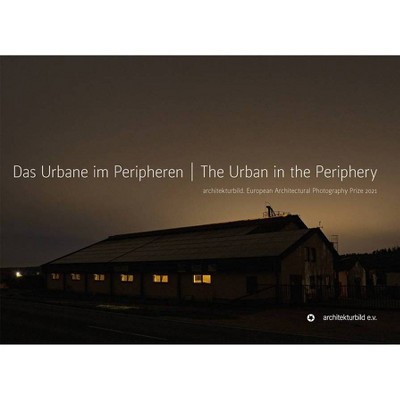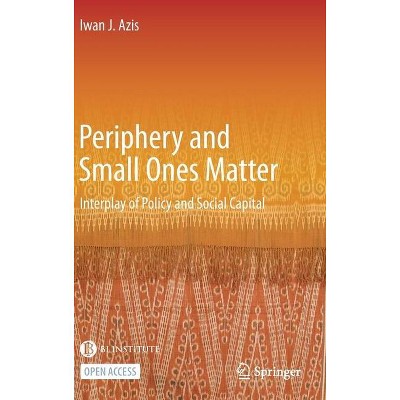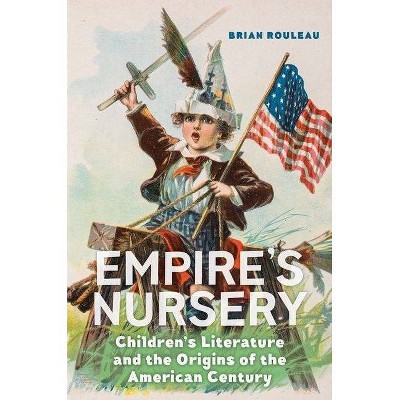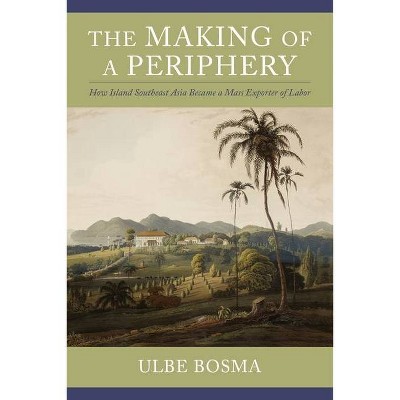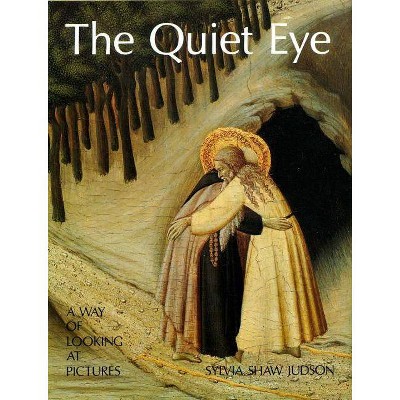Distance and Documents at the Spanish Empire's Periphery - by Sylvia Sellers-García (Hardcover)

Similar Products
Products of same category from the store
AllProduct info
<p/><br></br><p><b> About the Book </b></p></br></br>This book examines how documents, those crucial instruments of governance in the Spanish empire, were shaped by particular conceptions of distance.<p/><br></br><p><b> Book Synopsis </b></p></br></br>This book examines how documents, those crucial instruments of governance in the Spanish empire, were shaped by particular conceptions of distance.<p/><br></br><p><b> Review Quotes </b></p></br></br><br>A historical geographer's delight, this book warrants the attention of all scholars of Spanish America, especially those whose research interests lie primarily in Central America, a region where illuminating the nature of colonial experiences is still a work in progress.--W. George Lovell "<i>The Americas</i>"<br><br>In this fascinating book, Sylvia Sellers-García describes a period of history--and an archival process--lost to time, yet relevant to our modern era . . . This is a superb book. It will appeal to anyone interested in how empires were ruled and what led to their demise.--Hope Leman "<i>Critical Margins</i>"<br><br>In this imaginative new study, Sylvia Sellers-Garcia envisions the Spanish empire as a series of spaces, nodes, and itineraries linked together by chains of paper overseen by notaries, mail carriers, and archivists . . Sylvia Sellers-Garcia has written a delightful book, rich in innovative insights and occasional personal reflections. It is a significant contribution to the historiography of colonial Central America, but it goes beyond that, taking its place among important recent efforts to historicize the written sources upon which scholars of colonial experience so heavily.--Stephen Webre "<i>Journal of Historical Geography</i>"<br><br>In this meticulous study Sellers-García interrogates the lives of documents and how they reflect multiple understandings of distance in temporal as well as spatial terms in late colonial Guatemala. Ambitious and illuminating, this work makes significant contributions to the social history of knowledge and communications, the history of Guatemala and of the Spanish empire.--Susan Deans-Smith "The University of Texas at Austin"<br><br>Making the case that the way we define centre and periphery can have a significant impact on how we write history, Sellers-García follows several documents from their place of origin to their ultimate destination. By shadowing these documents over time and space Sellers-García illuminates the process by which they influenced, and were influenced by, conceptions of distance and peripherality, while incorporating into the conversation the various people who along the way handled, read, debated, and added content to them--all of which give us great insight into the colonial production of knowledge.--Ignacio Martínez "<i>European History Quarterly</i>"<br><br>This book reads, to me, not so much as a single book but as three separate and independent studies (but they work well together) . . . All of them are very important. And all of them make significant contributions to our understanding of the history of the Spanish empire, especially in the eighteenth century, and to cultural histories of reading and writing.--Antonio Barrera-Osorio "<i>American Historical Review</i>"<br><p/><br></br><p><b> About the Author </b></p></br></br>Sylvia Sellers-García is Assistant Professor of History at Boston College.
Price History
Price Archive shows prices from various stores, lets you see history and find the cheapest. There is no actual sale on the website. For all support, inquiry and suggestion messagescommunication@pricearchive.us

